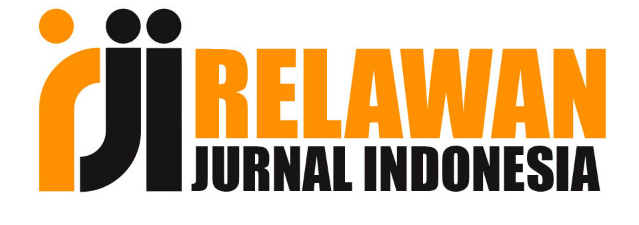Model Pembelajaran PAI Sekolah Dasar di Masa Pandemi Covid-19
Abstract
Keywords
References
Auliarahma Sidqi, Nasya, and Pipin Aulia. “Analisis Kesiapan Guru Dalam Pembelajaran Jarak Jauh Saat Covid-19 Nasya.†Journal of Chemical Information and Modeling 53, no. 9 (2017): 21–25. http://www.elsevier.com/locate/scp.
Dariyatun. “Menjaga Mutu Pendidikan PAUD Pada Masa Pandemi Covid-19 Dengan Pembelajaran Jarak Jauh (PJJ).†Jurnal Pendidikan Dasar 9, no. 1 (2021): 58–64.
Fatma Dewi, Wahyu Aji. “Dampak Covid-19 Terhadap Implementasi Pembelajaran Daring Di Sekolah Dasar.†Jurnal Ilmiah Pendidikan Citra Bakti 8, no. 2 (2020): 157–169.
Hasbullah. “Wawancara Model Pembelajaran PAI SD Di Masa Pandemi Covid-19,†2021.
Herliandry, Luh Devi, Nurhasanah, Maria Enjelina Suban, and Kuswanto Heru. “Transformasi Media Pembelajaran Pada Masa Pandemi Covid-19.†Jurnal Teknologi Pendidikan 22, no. 1 (2020): 65–70. http://journal.unj.ac.id/unj/index.php/jtp.
Hidayah, Nurul. “Tantangan Kebijakan Pembelajaran Jarak Jauh Di Era Pandemi Covid-19.†Jurnal Pencerahan 14, no. 2 (2020): 133–151. http://www.jurnalpencerahan.org/index.php/jp/article/view/31.
Mastur, Muhammad. “Upaya Guru Dalam Melaksanakan Pembelajaran Daring Pada Masa Pandemi Covid-19.†Jurnal Pendidikan Madrasah Ibtidaiyah 2, no. 3 (2020).
Maulidi, Achmad. Hubungan Kecerdasan Spiritual (Spiritual Quotient) Dengan Moral Siswa MA. Nurul Huda Pakandangan Barat. MAHAROT: Journal of Islamic Education. Vol. 1, 2017. http://ejournal.idia.ac.id/index.php/maharot.
Moleong, Lexy J. Metode Penelitian Kualitatif. Bandung: PT. Remaja Rosdakarya, 2006.
Prasetyaningtyas, Susi. “Pelaksanaan Belajar Dari Rumah (BDR) Secara Online Selama Darurat Covid-19 Di SMP N 1 Semin.†Jurnal Karya Ilmiah Guru 5, no. 1 (2021): 86–94.
Priyanto, Agus, and Izzati Izzati. “Peran Orangtua Dalam Mendampingi Anak Belajar Dari Rumah Di Masa Pandemi Covid-19.†JCE (Journal of Childhood Education) 5, no. 2 (2021): 396.
Sugiono. Metode Penelitian Kuantitatif Dan R&D. Bandung: Alfabeta, 2017.
Susanto, Budi. “Hendi Sebut Ada Lima Kendala Dalam Pelaksanaan Pembelajaran Jarak Jauh.†Tribun Jateng, 2020.
Yunitasari, Ria, and Umi Hanifah. “Pengaruh Pembelajaran Daring Terhadap Minat Belajar Siswa Pada Masa COVID 19.†Edukatif : Jurnal Ilmu Pendidikan 2, no. 3 (2020): 232–243.
DOI: 10.28944/maharot.v5i2.911
Refbacks
- There are currently no refbacks.

This work is licensed under a Creative Commons Attribution-NonCommercial-ShareAlike 4.0 International License.






